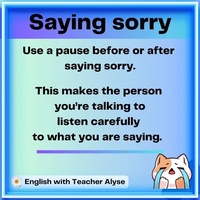多彩な 英語 講師陣から検索…
あなたにおすすめのトピック
なにかコメントはありますか?
編集者ピックアップ

Why "General English" is Failing Your Career (An Engineer’s Perspective)
13 いいね · 8 コメント

Carnival in Portugal: History, Traditions, Regional Celebrations, and Its Influence on Brazil
4 いいね · 4 コメント

Why Many Kids Struggle With English - and How the Right Tutor Makes a Difference
3 いいね · 3 コメント

Italian Passive Voice
4 いいね · 1 コメント

Start Your Korean Journey: 4 Charming Picture Books for Absolute Beginners
3 いいね · 1 コメント

The Many Shades of “Magari” in Italian: A Guide to Meaning, Tone, and Context
2 いいね · 0 コメント

Why “Just Around the Corner” Is (Usually) a Lie
11 いいね · 8 コメント

English for Customer Service: Dealing with Clients Professionally
7 いいね · 1 コメント

Santa, St. Nicholas, or Father Christmas? How Christmas Varies Across English-Speaking Countries
13 いいね · 4 コメント

11 Portuguese Superstitions You Should Know
5 いいね · 0 コメント
他の記事


